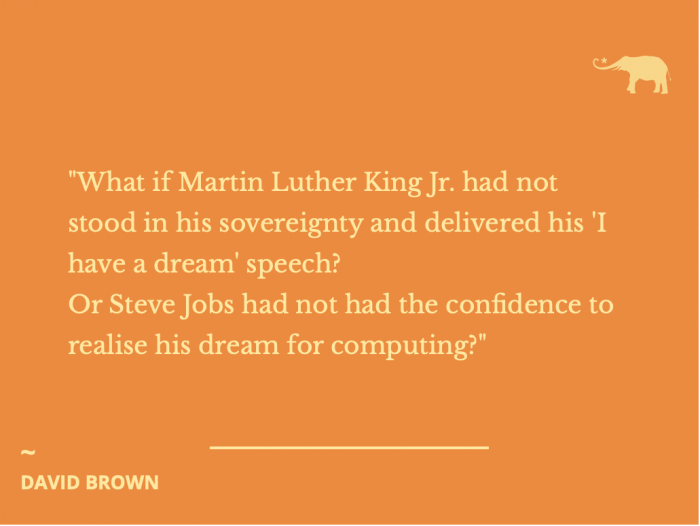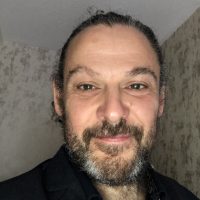How is it that in some of the wealthiest nations of the world, where people have the most and opportunities are greatest, we see the highest incidence of poor mental fitness?
And how can it be that at a time when the world is at our fingertips, rates of suicide are growing, while our physical health is diminishing, as is the health of our planet?
The answers lie within.
For the most part, we have lost connection with who we truly are and in an attempt to fill the void this disconnection creates, we look outside ourselves for the answers. This takes us further from ourselves, as we seek money, status, power, material possessions, love, certainty, security, and more. It’s a negative spiral that we must each address within ourselves for the benefit of our own well-being, and the future of our species and the planet.
Humanity has been grappling with this complex issue for thousands of years. Chinese philosopher and statesman Confucius (551–479 B.C.) was aware that in order to govern the Empire of China in a just and harmonious fashion, the leaders of the day had to know themselves, their strengths, weaknesses, priorities, values, purpose, and meaning. And find ways to express these wisely through their work, relationships, and how they conducted themselves through their daily lives.
In short, it pointed to claiming inner sovereignty—for the benefit of themselves, those closest to them, the people they governed, and the nation at large.
This same wisdom applied to everyone, from courtiers to candle makers, princes to paupers, government officials to grave diggers. Those who claimed their inner sovereignty lived in physical, mental, emotional, and spiritual harmony, and prosperity—which is clearly of benefit to the individual, and therefore good for those closest to them, their community, and the nation.
That same wisdom is as relevant today as it was then.
Our lives are fast-paced, distracted, striving, and frantic—when what would feed our souls is slowing down, bringing our attention inward with compassion, becoming grounded, and acting from a place of balance.
Too often we are out of balance. I remember so clearly reaching outward for money, material possessions, status, alcohol, drugs, sex, food, exercise, TV, the internet, and more to soothe the pain I experienced of being disconnected from who I truly am. And all too soon that pain would return, keeping me perpetually out of balance, so that I was unstable in my work, relationships, and life. I wanted to get balance back by taking ownership of my internal environment.
The events of life are external situations about which I can choose my response. By recognising that my responsibility lies in my choices and intentions, I have the freedom to be whomever I decide—I am the author of my life.
While I cannot control what other people do, I can be true to myself and role model self-sovereignty. To aid me in this on-going journey of self-responsibility, I meet people who help me reestablish, maintain, and deepen my relationship with myself. It has become a daily practice to realign with who I truly am whenever I need to, so that I can bring the best of myself to the situation at hand.
That practice for me starts with the body. To bring my body into balance through alignment of posture, relaxation of core muscles, and a releasing of tension that centres my body weight, allowing the ground to support me. With that balance, my mind and emotions are calmer, and I know I am connected to my sovereign wisdom.
I recently applied this to a situation with a colleague who kept turning up late for our meetings. Rather than let it slide and pretend it was not important, I honoured my own values and sense of sovereignty and brought it up. In the past I would have gone for the quiet life and allowed myself to live with the frustration and discomfort—those feelings that come when I want to say something, but I don’t for fear of rocking the boat.
On that occasion, I made sure we had a conversation about it. I aligned to my sovereign wisdom and spoke about the situation from that place of confidence. This single act has strengthened our working relationship and we honour each other’s time with more respect and courtesy as a result.
By contrast, I have allowed a client relationship to be far less effective and productive than it could have been because I did not stand in my sovereignty. I did not lead our relationship from a place of authenticity and self-authority. I was too concerned about what the client would think, rather than focusing on deep service. We worked within the client’s limiting beliefs when my role could have been to help the client see what was possible—ultimately, we both lost out.
If we do not know ourselves, we cannot step into our greatness. Then, not only do we lose out, but the people we share our lives with lose out too. There are times when this could extend to a national or global scale. From buying local and helping in our communities, to purchasing sustainable products and using renewable energy. When we stand in our sovereignty, we make choices that serve something greater than the individual, which benefits us all.
What if Martin Luther King Jr. had not stood in his sovereignty and delivered his “I have a dream” speech? Or Steve Jobs had not had the confidence to realise his dream for computing? What if you do not embrace your greatness and share your gifts? You only have access to all that potential when you stand in your sovereignty.
I used to think it was all about confidence, but now I recognise that it’s about getting to know ourselves in our entirety, fully accepting ourselves, warts and all, and loving ourselves unconditionally and compassionately.
I heard a quote recently from professional coach, Gary Mahler:
“The problem is not that you are not confident, it is that you have forgotten who you are.”
We all have experiences that lead us to hide. As children, we diminish our sovereignty to fit in, withdraw, and conform, or we may hide it by being rebels, loud and arrogant—all in the hope of being loved.
But what if we can reclaim our sovereignty? What if we can burn bright and offer our gifts to the world? How might our physical and mental fitness be then? How might our nations and ecosystems thrive if we embrace our brilliance and know that we are enough just as we are?
The only path to peace in the world is for us to be at peace in our hearts. There is nothing outside that can fill the void within.
The wisdom of Martin Luther King Jr. and Confucius is eternal—our inner sovereignty leads to harmony for us all.












Read 1 comment and reply